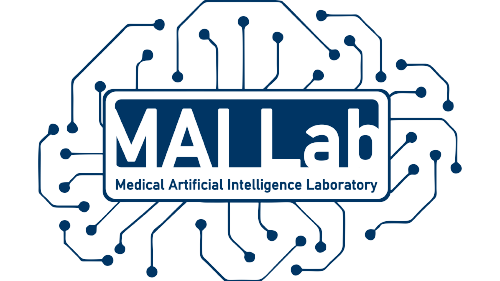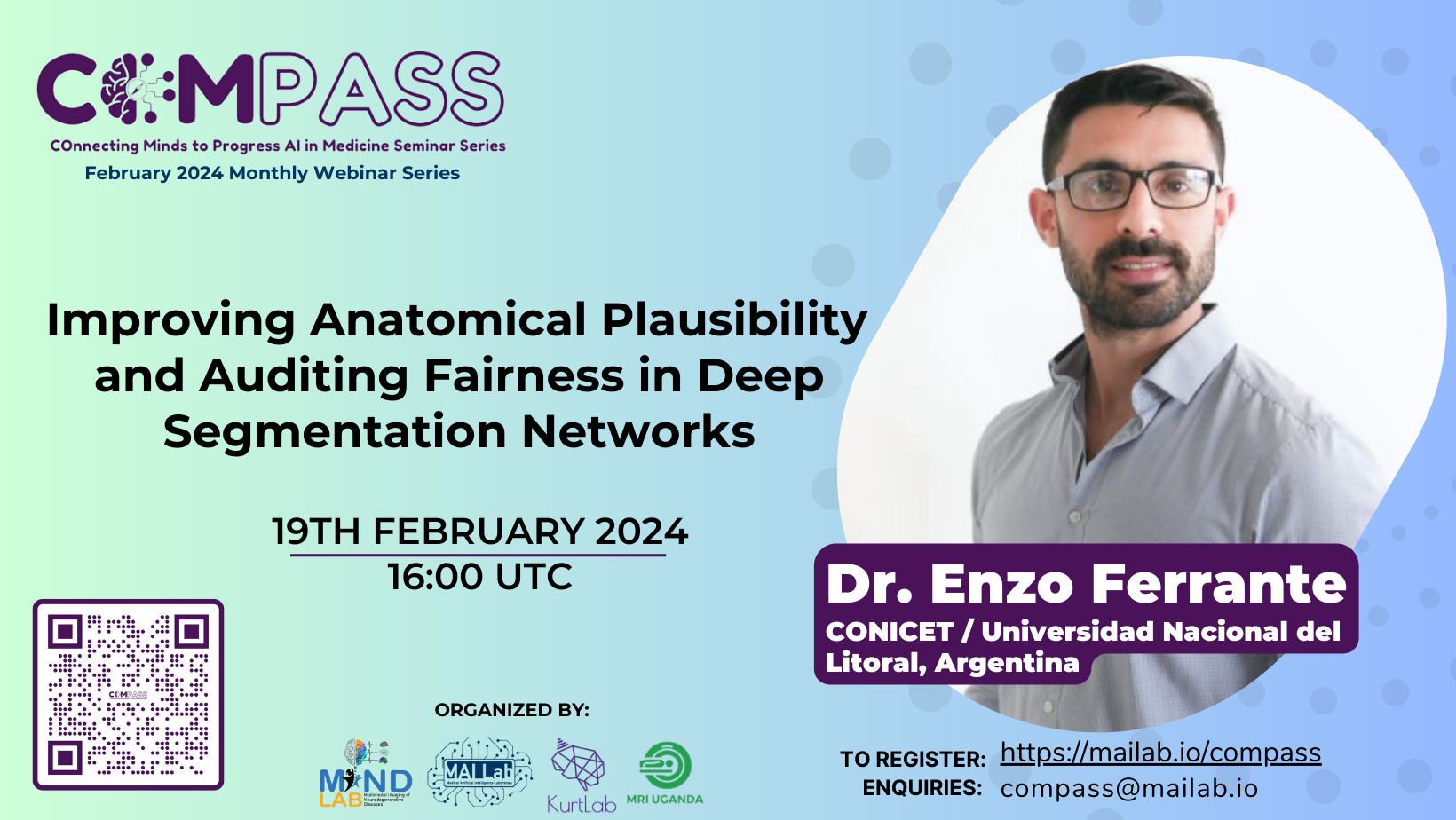Title: Improving Anatomical Plausibility and Auditing Fairness in Deep Segmentation Networks
Abstract: The evolution of deep segmentation networks has empowered the enhancement of extensive medical imaging datasets with automatically generated anatomical segmentation masks. In this talk we will discuss recent methods we proposed to improve anatomical plausibility in deep segmentation networks. By improving anatomical plausibility, we mean to ensure that the segmentation masks produced by our network are constrained to the actual shape and appearance of organs. We will briefly discuss some of our studies [1,2,3] which use autoencoders to learn low dimensional embeddings of anatomical structures and propose different ways in which they can be incorporated into deep learning models for segmentation and registration.
The complexity is further intensified by recent studies indicating potential biases in AI-based medical imaging models related to gender, age, and ethnicity [4,5]. Here we will share insights from our journey in developing the CheXMask large-scale database of x-ray anatomical segmentations [6]. We will delve into the strategies we implemented for automatic quality control and the methods we formulated for unsupervised bias discovery in the absence of ground-truth annotations [7].
[1] Mansilla L, Milone D, Ferrante E. – Neural Networks (2020)
[2] Larrazabal A, Martinez C, Glocker B, Ferrante E. – IEEE Transactions on Medical Imaging (2020) – MICCAI 2019 (conference version)
[3] Gaggion N, Mansilla L, Mosquera C, Milone D, Ferrante E. – IEEE Transactions on Medical Imaging (2022) MICCAI 2021 (conference version)
[4] Larrazabal AJ, Nieto N, Peterson V, Milone DH, Ferrante E. – Proceedings of the National Academy of Sciences (2020)
[5] Ricci Lara MA, Echeveste R, Ferrante E. – Nature communications (2022)
[6] Gaggion N, Mosquera C, Mansilla L, Aineseder M, Milone DH, Ferrante E. – arXiv preprint (2023)
[7] Gaggion N, Echeveste R, Mansilla L, Milone DH, Ferrante E. – MICCAI FAIMI Workshop (2023)
Bio: Dr Ferrante completed his PhD in Computer Sciences at Université Paris-Saclay and INRIA (Paris, France), and worked as a postdoctoral researcher at Imperial College London in the UK. He has also been a visiting student at the CVGL Lab at Stanford University (2014), Fulbright Visiting Researcher at the A. Martinos Center for Biomedical Imaging (Massachusetts General Hospital – Harvard Medical School, 2021) in Boston, and DATAIA Invited Professor position at MICS Lab, Centrale-Supelec, Université Paris-Saclay (Paris, France, 2023).
He is currently a faculty researcher at Argentina’s National Research Council (CONICET) where he leads the Machine Learning for Biomedical Image Computing research line in the Research Institute for Signals, Systems and Computational Intelligence, sinc(i). He regularly serves as a member of the program committee of medical imaging conferences such as MICCAI, MIDL, ISBI and IPMI, and he has organized several workshops in this context. Dr Ferrante received the Young Researcher Award from the National Academy of Sciences of Argentina (2020), the Mercosur Science & Technology Award (2020) and the Google Award for Inclusion Research (2022) for his scientific projects related to AI for medical image computing. His research interests span artificial intelligence and biomedical image analysis, currently focusing on fairness, domain adaptation and generalization, calibration, and anatomical segmentation of medical images.
Schedule:
Date: 19th February 2024
Time: (16:00 UTC), (17:00 WAT), (11:00 EST), (10:00 CST)
Meeting Link: To be sent to only registered participants
Contact Information
compass@mailab.io
View recordings of previous sessions on our YouTube channel https://www.youtube.com/@COMPASS-nn5or
Social Media


Leave a Reply